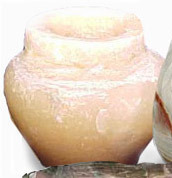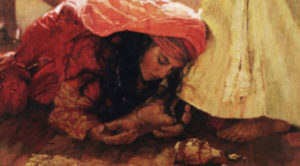My sister Mary’s life and death have caused quite a cyber-stir. Literally hundreds have responded to blog posts about her, and not just those who knew her. Equally as many strangers have reacted to her story.
Yesterday I received an insightful comment in response to the post about Mary being a hard worker. (Hard Workin’ Woman) My friend Terry (who didn’t know Mary) wrote, “Mary’s influence continues. Because of this post, there are a few things I am going to do, because I should do them.”
Then she added, “I am mindful of a verse as I think of this, ‘She did what she could’.”
At first reading, that simple statement might describe someone who couldn’t do much but at least did a little – maybe trying hard but falling short. I knew that wasn’t what Terry meant, so I decided to look up the Scripture to see who “she” was and what she “could do.”
What I found astounded me, and Terry’s linking of that sentence with my sister was a connection of highest praise.
It’s a familiar story found in Mark 14. Jesus had been wearing himself out, walking long distances, ministering to the poor, healing the sick, and teaching his disciples. In a few short days he would be hanging on a cross, and he was well aware of it.
On this particular day, as Jesus and his followers continued walking toward Jerusalem, one of the people he had healed decided to host a dinner in his honor. Three of Jesus’ close friends had been invited, too: Lazarus, Martha, and Mary.
 As Martha helped out in the kitchen, Mary approached Jesus, who was already seated at the dinner table. Then she surprised everyone by purposely breaking a valuable alabaster jar and revealing its contents — worth about $22,000.
As Martha helped out in the kitchen, Mary approached Jesus, who was already seated at the dinner table. Then she surprised everyone by purposely breaking a valuable alabaster jar and revealing its contents — worth about $22,000.
She proceeded to pour the expensive nard, a powerfully- fragrant ointment, on Jesus’ hair and feet, wiping his feet with her own hair.
 Scripture says the fragrance filled the entire house, no doubt capturing the attention of every guest and even Martha in the kitchen. Some found it odd. Others were speechless. Several objected to the financial waste, voicing criticism.
Scripture says the fragrance filled the entire house, no doubt capturing the attention of every guest and even Martha in the kitchen. Some found it odd. Others were speechless. Several objected to the financial waste, voicing criticism.
But Jesus highly approved and defended Mary. “Leave her alone,” he said. “Why are you bothering her? She has done a beautiful thing to me. She did what she could.”
That’s when I realized that my friend Terry’s comment had been one of utmost admiration for our Mary, who had gone through life doing what she could for her Lord and others.
But Jesus wasn’t finished.
He venerated the biblical Mary by saying, “Wherever the gospel is preached throughout the world, what she has done will also be told, in memory of her.” Although she hadn’t intended to draw attention to herself, Jesus turned the spotlight on her, announcing to the dinner guests (and us) that what Mary had done was so important, it would never be forgotten.
Many of us will never forget some of the things our Mary did in her lifetime, either. That’s because she always did what she could.
Jesus said, “She poured perfume on my body…” (Mark 14:8)
